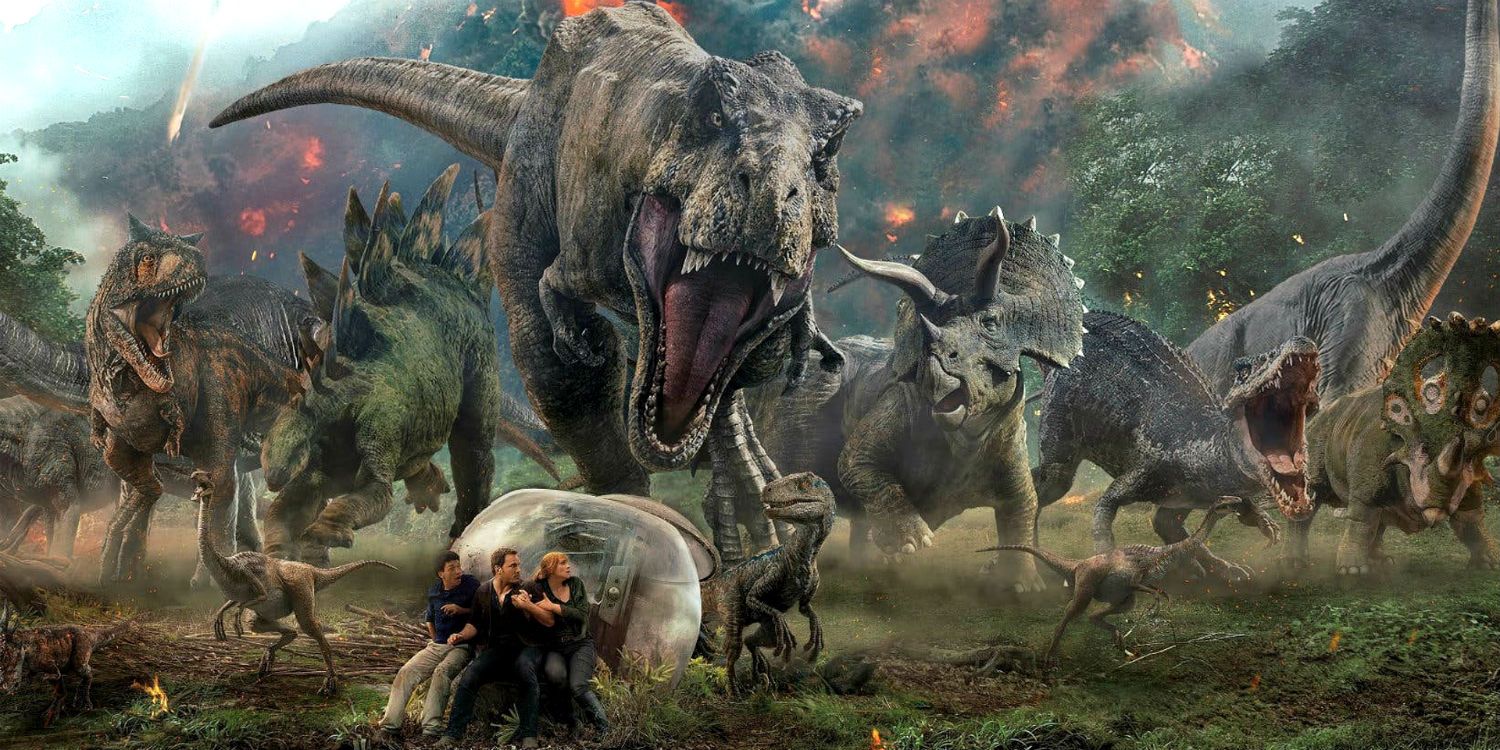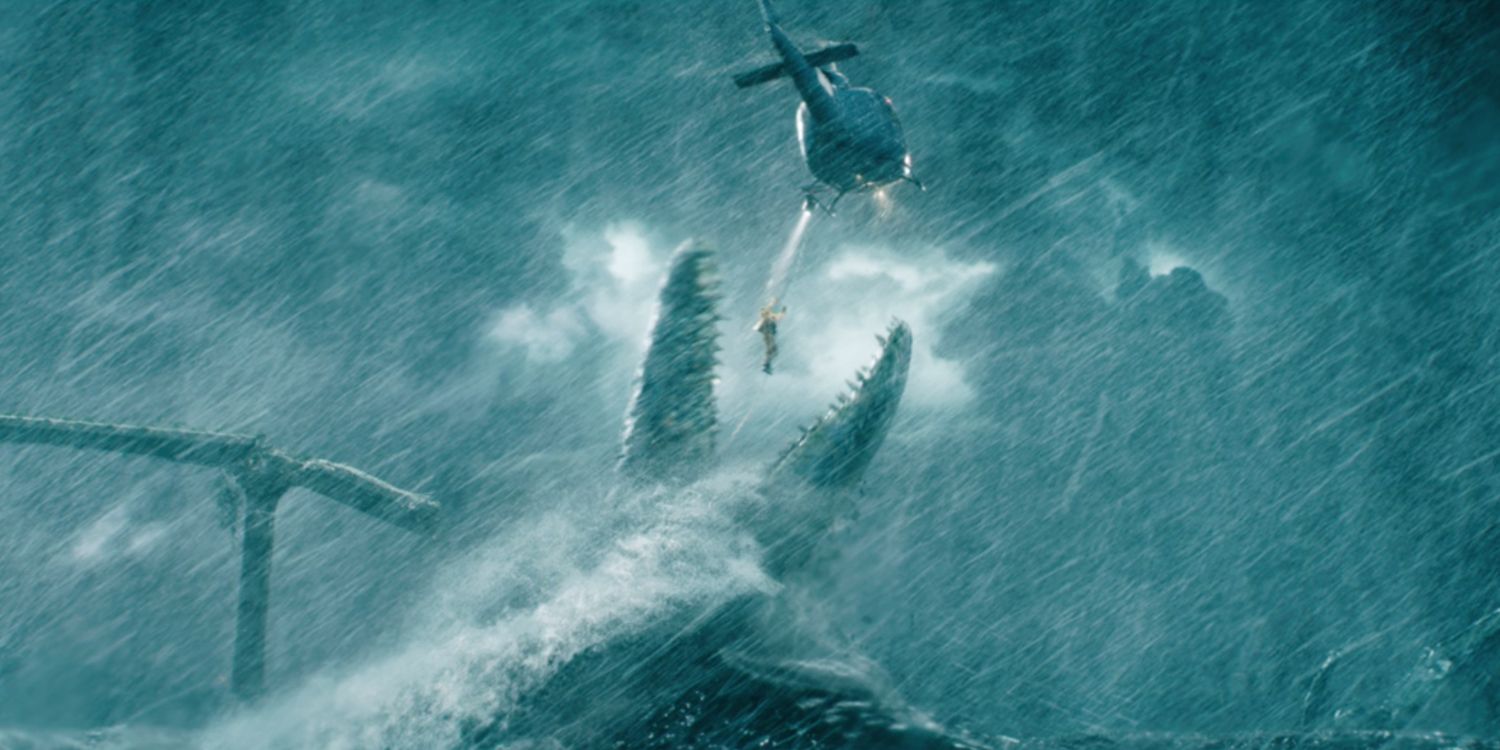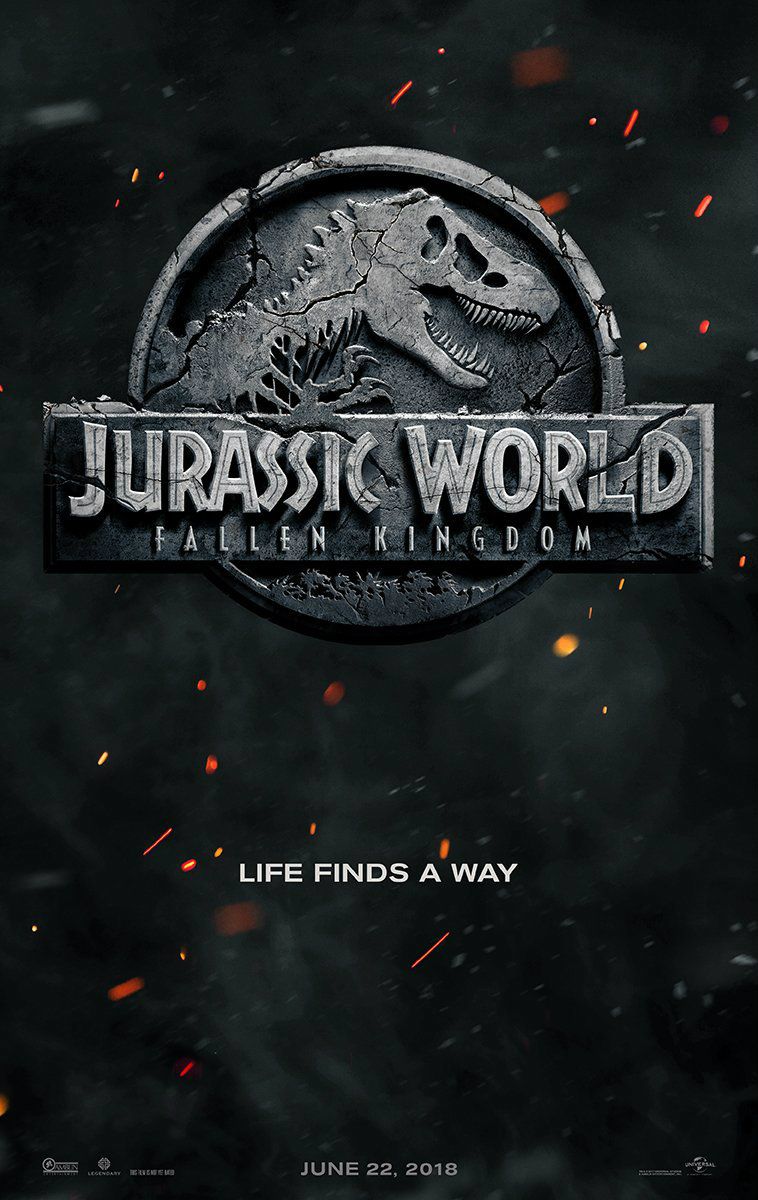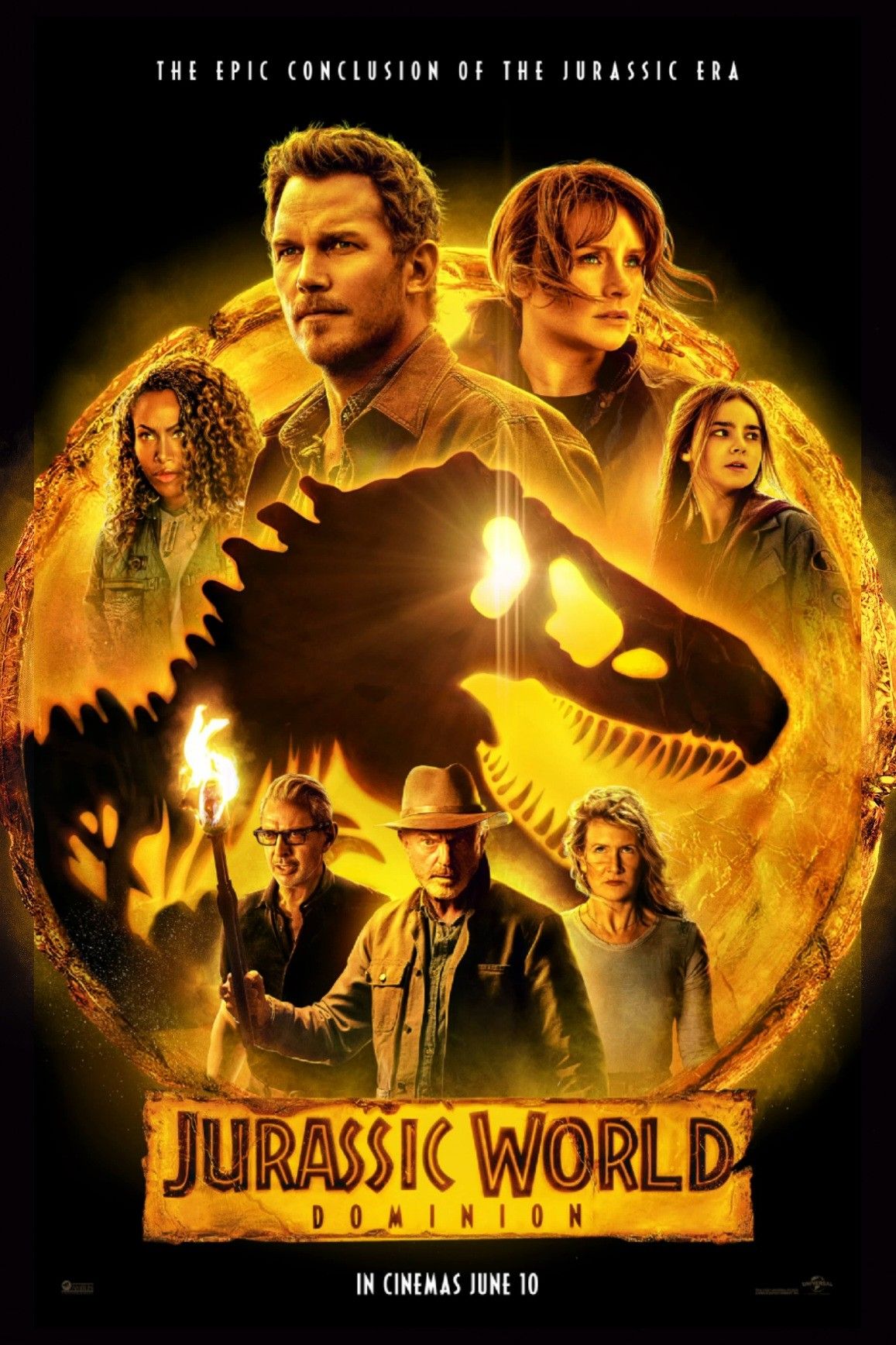Warning: this article contains spoilers for Jurassic World: Fallen Kingdom.
-
Jurassic World: Fallen Kingdom may be taking the world by storm, but there's one aspect of its marketing that frustrates producer Colin Trevorrow. When one considers that its 2015 predecessor Jurassic World was the fifth-highest grossing film of all time - and held the #4 slot prior to the arrival of Avengers: Infinity War - it's not at all surprising that Fallen Kingdom has taken off as well as it has at the box office. Despite just recently hitting theaters stateside, a massive international run has already seen director JA Bayona's sequel snap up over $700 million worldwide.
That's all despite Fallen Kingdom doing pretty poorly with critics, sporting a 50% rating on Rotten Tomatoes. Audiences felt quite differently, with the film earning an A- CinemaScore, just slightly below the A earned by prior 2018 blockbusters Infinity War and Deadpool 2. Part of the draw is of course that people at large continue to be fascinated by the majestic creatures known as dinosaurs, and the big-budget CGI renditions found in the Jurassic Park/World franchise represent some of the best opportunities to witness what said creatures might have been like.
Related: Why Jurassic World 2's J.A. Bayona Dropped Out Of Directing World War Z 2
It turns out though that Fallen Kingdom producer Colin Trevorrow - who also co-wrote the sequel, as well as directed the first Jurassic World - isn't exactly pleased with just how eager Universal's marketing department has been when it comes to proudly displaying some striking dino-based images from the film to the public. In a recent interview with io9, Trevorrow revealed that he wishes footage from two particular scenes - the mosasaurus hunting surfers in the open ocean, and a T-Rex exchanging roars with a lion - had not been given away to audiences before Fallen Kingdom was released to theaters.
“It was very frustrating for me,” he said. “That’s a relationship that we have with marketing [and] there are a lot of different needs. I try to be very lucid and rational about it, [but] to speak frankly, there is a very, very small percentage of people who watch all the trailers. The rest of the world might only see one.”
Trevorrow thinks marketing chose to use those images because the Jurassic franchise is “constantly asked to prove the validity of its own existence with every movie that we make,” thus he feels the commercials need to “entice people to come back” more than some other franchises.
“Which, actually, is great,” he added. “It stops us from resting on our laurels or just assuming the audience is going to show up. The downside is it feels like marketing is constantly feeling the need to make the case. I would definitely have preferred those images not be seen, but, if you haven’t watched the trailers, just go see the film.”
It's easy to understand why Trevorrow is upset about Universal's decision to include the aforementioned scenes in Jurassic World: Fallen Kingdom's marketing campaign. While seeing those clips obviously doesn't provide potential viewers with the context behind those sequences, the clips do in essence give away two large plot points in the film. The first happens early on, when the enormous, water-dwelling mosasaurus makes a meal out of a few hapless humans, and escapes into the open ocean to feed. The second is that near the end of the film, many dinosaurs - including Rexy herself - are released into the wilds of America, with no constraints on what they might do next.
Making the choice of those images even more striking is that both are seen in the very last minutes of Fallen Kingdom, as viewers are shown a montage of escaped dinosaurs getting up to no good in the USA. Interestingly, the marketing also gave away a large portion of Dr. Ian Malcolm's (Jeff Goldblum) ending speech, which wraps up with the line "Welcome to Jurassic World." That also kind of spoils the fact that the dinosaurs escape, although people watching the trailers could just as easily have thought he was talking about the titular theme park, so it's not surprising that Trevorrow doesn't seem bothered by that one.
Trailers and marketing spoiling films is by no means a new phenomenon, and will likely continue to annoy directors, writers, and producers well into the future. Unfortunately, what might seem most attractive to include in a trailer, may also give away vital plot information. It's a delicate balance to strike, and sometimes studios fail.
More: The Biggest Unanswered Questions From Jurassic World: Fallen Kingdom
Source: io9




